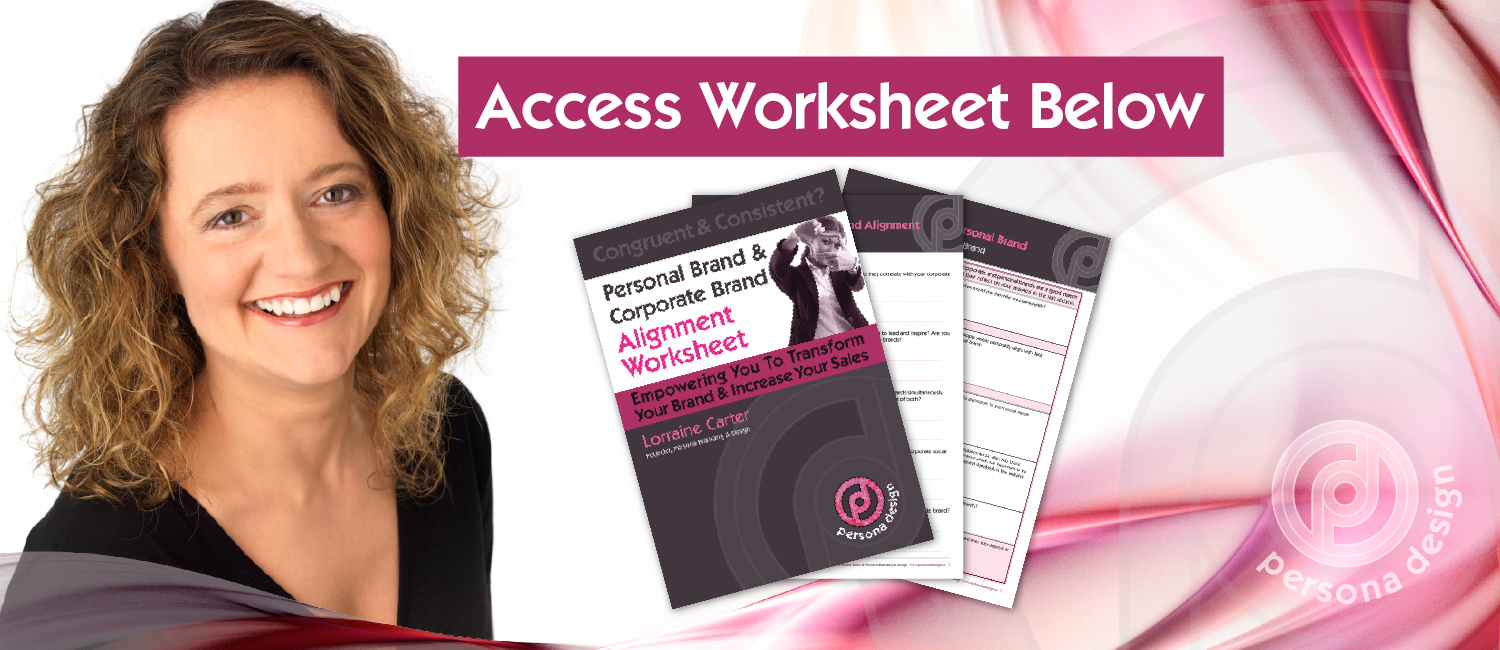How to Align Your Personal Brand With Your Corporate, Product or Service Brand to Grow Your Business
What’s a Personal Brand or Personal Branding?
In the array of marketing and branding strategies, personal branding truly stands out. Not only is a personal brand and personal branding extremely effective, when managed strategically, but it’s become a standalone science along with corporate branding. In fact, there are copious examples of strong personal brands across diverse sectors that have evolved over recent years resulting in significant market impact, all of which has collectively led to businesses, small and large, seeing personal branding as a vital marketing strategy.
So what is a personal brand and personal branding? Personal branding is the strategic activity of individuals marketing themselves, their careers and what they do as brands in their own right. It’s the ongoing process of establishing, developing and managing your profile or image in the mind of your target audience as the ‘expert’ go-to-person for a particular area of interest. In the business world personal and corporate brand alignment is critical for mitigating risk and essential for success, particularly amongst business leaders and managers.
Personal branding was popularized by an article by Tom Peters in Fast Company Magazine. As Tom puts it: “We are CEOs of our own companies: Me Inc. To be in business today, our most important job is to be head marketer for the brand called You.” The article emphasized the important role personal branding plays in a job search and personal development. However, the market has changed and become far more sophisticated with the advent of social media.
The popularity of personal branding as a marketing tool accelerated when Facebook, Youtube, and LinkedIn entered the scene. In social media, everyone is potentially a brand if they leverage it strategically. The key to success lies with those who use their personal brand as the voice or champion behind the product or service they sell to raise its profile. It’s the leveraging of a personal brand and aligning it with a product, service or institutional brand which has made personal branding a highly profitable, revenue-generating strategy.
Typically many of the early adopters started building their personal brands without major expectations. Initially, their social media activities were aimed at family and friends and then they realized that the content they created could have far-reaching interest to an extended audience.
Those of more recent years with deliberate strategic intent have used their personal brands with a strong commercial focus from the get-go to make it the voice of a product/service brand so it becomes a revenue-generating hub behind the products or services they sell. Others have used their personal brand as the central monetary focus by attracting brands who want to be associated with them — and pay substantial fees for the privilege.
Related: How To Use Brand Ambassadors To Open New Revenue Channels
Gary Vaynerchuk, for example, had a distinct goal when he started making videos giving advice to people on how to choose their wine. His initial goal was to promote his family wine business. Gary is one of the pioneers of personal branding. As he elaborates in one of his books, he didn’t intentionally set out on a journey of creating a personal brand, rather he recognized the innate desire of people to connect with real human beings as opposed to corporate brands. Gary now owns a very successful digital media company, runs a Youtube channel, and often presents at conferences and events. Check out his life story in the video below:
When Gary started, there weren’t many people who built their brands around their own personality. Frequently today, brand owners and company leaders engage in personal branding strategies with the objective of emulating Gary’s success in their own businesses.
If you’re trying to bring your personal brand into alignment with your corporate brand (product or service) but are struggling to develop it to best advantage — we can help. As expert brand strategists, we offer brand strategy creation services that provide structure and guidance for all points of contact within a business, both internally and externally with your customer. Ask about our ‘Personal Branding Vs. Corporate Branding Alignment for Commercial Success’ Masterclass.
- Schedule an appointment — we can meet in person or online
- Allow us to create a customised plan for you
- Let’s implement the plan together
- Get in touch [email protected] or ring +353 1 8322724
We lead you through your brand building journey, whether you’re a well-established business hungry to seriously accelerate your expansion and take things to the next level or in the early years of rapid growth spurts.
In fact, we have the perfect solution for you, three different ways of working with us to build your personal and corporate brand, depending on your preferences — so if you want us to:
- Build your brand for you – find out more here or get in touch [email protected] or ring +353 1 8322724
- Empower you to build your brand – check out the Persona Brand Building Blueprint™ Mastermind here. This is a two-day intensive where you work on your brand with us codifying and mapping out your brand strategy for business growth. Alternatively, join our half-day Branding Accelerator Masterclass for a fast-injection of brand building essentials. We also have a dedicated Personal Brand & Corporate Brand Alignment Masterclass
- Want a DIY solution? Check out our how to build a brand eprogramme here because it empowers you to build your brand yourself so you become No.1 in your market and increase your profits
The Key Functions of Personal Branding
Businesses, first and foremost, pursue financial gain when they engage in any kind of marketing activity but apart from generating profits, there are many other important functions personal branding performs. Here’s what personal branding can do for your business:
1. Build Credibility: People trust people more than brands. A personal brand’s main function is to increase the level of trust and deepen the connection between the business and the customer.
2. Showcase Your Specialties: It’s often difficult to establish your expert profile or image as a corporate brand. After all, corporate brands are faceless entities unless they’re built with a compelling humanised brand personality, while on the other hand people are hard-wired to seek authoritative advice from real people. A corporate brand doesn’t have a resume or background story to share unless it’s been built with a backstory as part of its codification process. It also takes times to build a corporate brand reputation. On the other hand, regardless of where you are on your journey, you probably already have a special skill you can share with the world as part of your personal brand.
3. Connect with Your Target Audience: While corporate brands make people aspire to a certain image or promise of a brighter future, a personal brand helps customers connect faster with the brand here and now. It’s also used to develop your engagement and connectivity with key stakeholders, mentors, influencers and decision-makers alike, internally and externally.
4. Support a Corporate Brand: A personal brand can be leveraged to make a corporate brand more humanised because it becomes the voice behind the corporate brand when it’s used to champion it strategically. It also emphasizes the uniqueness of a corporate brand. It’s often more difficult to differentiate one corporate brand from another because they so frequently take a homogenous approach, particularly in professional services and financial sectors. On the other hand, stronger codification and brand humanisation throughout all the key brand building ingredients such as brand positioning, purpose, vision, personality, mission, values, story and archetypes would achieve clearer market differentiation and stand out that resonated with its primary customers. Personal branding is different. It’s a commonly accepted fact that each person is a unique individual with their own sets of goals, aspirations, values, and morals. Essentially, personal branding uses this social concept of each person’s uniqueness to enhance the uniqueness of a corporate brand.
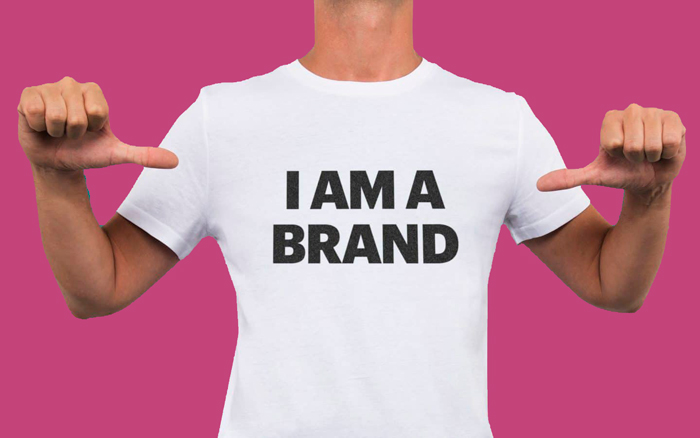
Pros and Cons of Personal Branding
In an ideal world, personal branding goes hand in hand with corporate branding because one enhances the other with harmonious alignment. However every organisation and business is different like for example where a corporate brand entity might be very personal in its personification reducing the need for the amplification of a personal brand behind it. Another scenario is when a business owner chooses not engage in building a corporate brand because they think it will override their already successful personal brand. Before you make a final decision on the best brand strategy for your business, let’s review the pros and cons of each branding strategy approach.[1]
Three Pros of Personal Branding
1. Flexibility: A personal brand provides maximum flexibility for the business. No matter what product or service you sell, your personal brand stays the same. It’s easier to change the business offering or even to venture out into the new market while continuing to rely on a personal brand.
2. More Trust: Trust is the major component of fruitful relationships because without trust prospects won’t buy. We’ve already established that people trust other people more than brands. A personal brand’s active presence in social media also enables you to show your customers that the business exists and is active in the market.
Related: 5 Remarkably Heartfelt Brand Personalities Winning Buyers at Christmas
3. Wider Application: With a corporate brand, you have to be more strategic or indeed judicious about the communication channels you use. With a personal brand, the boundaries can lack the same clarity or focus, unless the scatter-gun random approach is undermining your brand. Because people typically see a personal brand and a corporate brand as two separate entities you have more freedom to try and test different marketing and communication channels and strategies without them affecting the corporate brand so much.
However, if the personal brand is very well developed, corporate brand aligned and high profile with a large following than a more strategic approach is necessary to avoid undermining the corporate brand. For example, because a corporate brand is tied closely to business, even if you actively engage in corporate social responsibility and give back to the community at large you can’t claim that you’re saving the humanity with real authenticity because a business’s main goal is to derive profit. But as a personal brand, you can show your audience that you care about larger social issues. So the potential of what you can do as a personal brand is frequently less restrictive. When the two are combined and fully aligned then they become a very potent force.
Related: Social Responsibility, How to Build a Socially Conscious Brand
Three Cons of Personal Branding
1. Revolves Around One Person: When you’re successful as a person it strengthens your personal brand. But when you make a mistake or worse – when you fail – it can have a negative effect on your personal brand and undermine your business. If you fall ill or your reputation gets damaged, you can’t replace yourself with another person, because you as a person form the core of your personal brand.
2. Hard to Sell a Business Built on a Personal Brand: You may not have plans to sell your business now but it’s an important factor to consider in future planning. If you build your business solely on a personal brand, you become a strategic asset for the company. Selling a business built on a personal brand presents all sort of negative complications because you as an individual are ultimately leaving the corporate entity so when you leave, the business loses some of its perceived value. It’s frequently the reason why SME/SMB businesses are undervalued and sell for less than an equivalent business with a strong standalone corporate brand asset.
3. Risk to Override a Corporate Brand: People have more channels of self-expression than corporate brands. They can also engage in all kinds of activities that are not directly related to business. This presents a risk for a corporate entity because it’s usually restricted by a set of behavioural brand rules and guidelines which can be undermined by a personal brand.
Trying to build a personal brand? As part of our brand strategy creation process we help you strengthen and build your personal brand fully aligned to your corporate brand so that you can inspire and challenge and connect with your customers on a more human level. Get in touch to find out more [email protected] or T: +353 1 8322724 (GMT 9:00-17:30)
We also offer DIY programmes such as Personality Profile Performer™Programme that makes it easy for you to create a powerful brand from scratch yourself.

Your DIY brand building eprogramme. Start building your standout, highly visible brand yourself with Lorraine Carter’s direction and systems here
Pros and Cons of Enterprise Corporate Branding
Pros of Enterprise Corporate Branding
1. Builds Trust: Helps establish trust in the quality of a product or service. Unlike personal brand that focuses on creating connections, corporate branding focuses on making the product appeal to its primary customers. A corporate brand’s main focus is to turn a list of product benefits into aspirational qualities and to assign an emotional meaning to the problem the product is trying to solve. Even though personal branding forces people to consider the product at the initial stage, ultimately, the final purchasing decision is made based on the rational and emotional benefits of the product or service, not the person who is trying to sell it.
Related: 4 Reasons Why Your Business Profit Starts With Your Brand Mission
2. Centralises Collective Focus: A corporate entity brand can form and unite people into communities. People look up to leaders but they tend to form communities around shared beliefs, concepts, and ideas. With a corporate brand, you have a central entity around which like-minded people can collect to form the community — unlike with a personal brand. This is partly due to the fact that communities centered around a single person are often denounced by modern society because of the negativity surrounding historical figures such as Hitler and Stalin, and partly because the equality of each individual is a very strong concept and driver in Western society, so communities formed around individual brands are more of a rarity.
Cons of Enterprise Corporate Branding
1. Too many stakeholders and decision makers: Building a successful corporate brand requires for every stakeholder and employee to stand together behind the brand’s purpose, vision, mission, values and beliefs. Sometimes you can encounter resistance at the initial stage of developing a brand when bringing everyone to a collective consensus because people have different views and projections.
2. Rebranding typically requires substantial effort and resources: It’s frequently easier to make changes to a personal brand, if it’s not directly related to your product — provided the personal brand isn’t a company mascot or VIP. With a corporate brand, however, you’re restricted by your product or service and business model. When you try to change a corporate brand radically you may have to reinvent entirely with a revolutionary approach or start a new business. Evolutionary updates in the form of a brand revitalisation strategy are often easier to implement and typically the strategy most frequently chosen. To find out more about rebranding or brand revitalisation click here.
Related: Redefining Your Brand Culture After a Rebrand, Sale or Merger
Aligning Corporate and Personal Brands
A personal brand’s main function is to support a corporate brand so you can achieve your business objectives more effectively. Unless you integrate your personal branding endeavours with your corporate branding strategy, your personal brand isn’t going contribute much value. In fact, if it’s not aligned it can do a lot of damage. Here is how you can align personal and corporate brands:
1. View your personal brand as support to your corporate brand
Always consider your corporate brand when you’re making decisions about a personal brand. Having this big picture view will automatically create more alignment between the two brands, as you engage in strategies that strengthen both brands and disregard the tactics that might help the personal brand but undermine the corporate brand.
Related: Brand Hierarchy Fundamentals for Multiple Brands To Avoid Confused Customers or Stagnant Sales
2. Use your personal brand as an evangelist
View your personal brand as a network and corporate brand as an entity. Recognize the personal brand’s main function of forming connections, and work towards strengthening your corporate brand’s aspirational image. Use your personal brand’s communication and networking channels to promote corporate messages, but don’t allow your personal brand messages to overtake your corporate channels.
3. Use your personal brand as a funnel
View personal branding as a marketing strategy that brings new leads. Personal brands enjoy wider exposure and are generally perceived as safer by customers, who don’t expect to be pressured to buy. Therefore, it’s sometimes best to reach out to prospects through your personal brand, but always make sure you introduce customers to your corporate brand somewhere along the sales funnel.
4. Avoid the risks of too much personal branding
People have a distinct set of values and beliefs that they’re raised with. Sometimes these beliefs might be incongruent with a corporate brand or even societal norms. Consider the case of Abercrombie & Fitch, whose CEO Mike Jeffries, reportedly, has very restricting views on what the term “cool” entails. Jeffries initially explained his understanding of “cool” without tying it up to a corporate brand and yet his radical stance on the issue had a profound effect on the company’s bottom line. While it’s normal for people to stick to their views, make sure your personal views don’t affect a corporate brand before you express them.
Case Studies of Perfectly Aligned Personal and Entity Brands
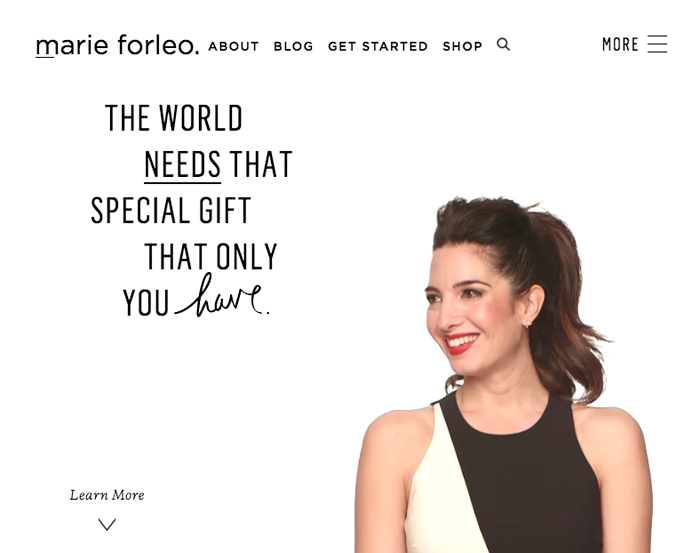
Marie Forleo
Marie is an entrepreneur, writer, and philanthropist who uses her personal brand to promote her products: an online business school, a copywriting course, and a book. Each product has a separate corporate brand, website, and positioning. This separation of corporate and personal brand assets is crucial to the success of the business. At the same time, Marie’s personal brand serves as an entrance into Marie’s personal world and various entity brand assets thus helping people connect with the brand on a human level.
GoPro – Nick Woodman
Nick Woodman created GoPro to reflect his own adventurer image. Nick is a frequent visitor to entertainment and business shows where he shares his love for surfing. Nick’s personal brand provides a great support to GoPro corporate brand by making people see beyond the product and helping them associate the brand with sports and adventure.
Virgin – Richard Branson
Richard Branson is a great example of a personal brand that offsets the potentially negative effects of a business. Richard is a great proponent of climate change policies but the Virgin brand is also associated with a successful air company, in amongst in the other sectors in which it operates. The modern consumer is concerned about the impact products and services have on the society and the world. So instead of using his personal brand as a sales tool, in this instance, Richard chooses to use it as a mitigation tool that helps society and the corporate brand to find a common ground.
Here is one of the videos where Richard advocates for climate change initiative.
Man Repeller – Leandra Medine
Started as a personal blog, Man Repeller evolved into a full-blown media company centred around fashion. Leandra’s personal blog is closely intertwined with her corporate brand.
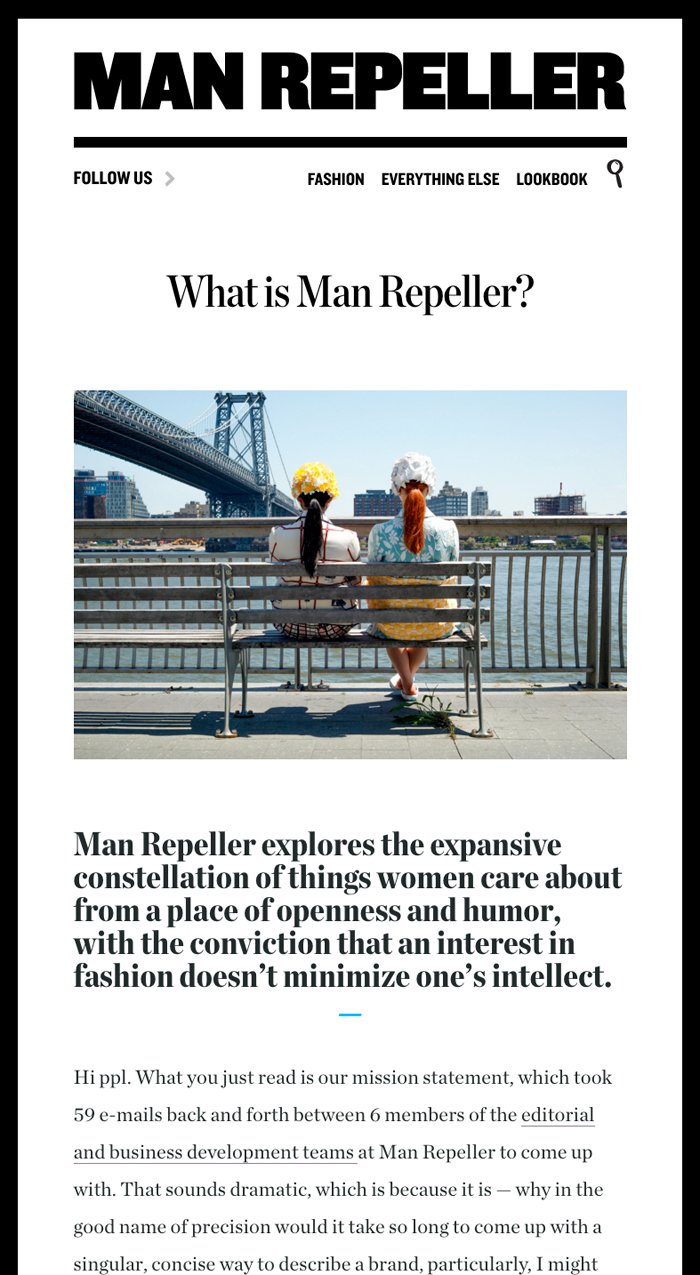
Leandra uses her personal brand to cover social issues as well as negative aspects of the fashion industry – these are issues that don’t tie in with the corporate brand’s playful image, so she uses her personal brand as a channel for self-expression.
Final Word
Personal branding is a must-do strategy for every business. As strong more personal brands come to the fore it can be challenging to differentiate yourself, but the main risk lies in the dilution of personal and corporate brands. If the boundaries aren’t clear through the brand codification process you risk damaging your corporate brand which will likely affect business results negatively.
However, if you do everything right and approach personal branding with a similar strategic focus comparable to corporate branding, a personal brand can help you strengthen the corporate brand and bring in thousands of potential customers. To align a personal brand with a corporate brand, view a personal brand as support to the corporate brand, use the personal brand as an evangelist and a sales funnel, and be constantly vigilant to the risk of excessive leveraging of the personal brand.
Still unsure how to make sure your corporate and personal brands fully align? We are here to help! When you work with us through our Brand Strategy creation process, you build a complete, easily understood and executable plan. One that provides distinction and will ultimately resonate with all those who interact with your brand.
We guide you through the entire process and ensure execution of the strategy is meeting agreed objectives and that your brand is being brought to life in the most relevant and inspiring way for your ideal audience.
Want to discover more about building your standout, №1 powerhouse personal brand fully aligned with your corporate entity brand?
- Schedule an appointment — we can meet in person or online
- Allow us to create a customised plan for you
- Let’s implement the plan together
- Get in touch [email protected] or ring +353 1 8322724
Questions to Consider:
- What are your personal passions, purpose and values and how do they correlate with your corporate brand values?
- How does your personality affect other people? Is it powerful enough to lead and inspire?
- Do you have time and resources to build personal and corporate brands simultaneously and fully aligned?
- What social issues do you personally care about that can provide a framework for corporate social responsibility?
- How can you optimize your personal brand to bring it fully in alignment with your corporate brand?
Your Client Satisfaction Guarantee
- When you work with us we’ll create a customised brand building plan and strategy with clear investment for you tailored to your specific requirements and preferences
- You’ll know each step of your brand building journey before we start because we’ll discuss it, document it and agree on it with you before work commences
- You’ll have timelines, key milestones and deliverables to evaluate and approve for each stage and part of your brand building process
- Because we know the unexpected sometimes happens we can make adjustments along the way if you need it and if something extra is requested we’ll ensure you’re fully appraised about what that entails before committing
- As we achieve pre-agreed objectives you’ll be able to evaluate your brand building work and strategy in progress, coupled with the outcomes to ensure return on investment
Get in touch today because we’d love to get started helping you build your standout, powerhouse brand so you can increase your performance and leave your competitors way behind. Email us [email protected] or ring us +35318322724 (GMT 9:00-17:30).
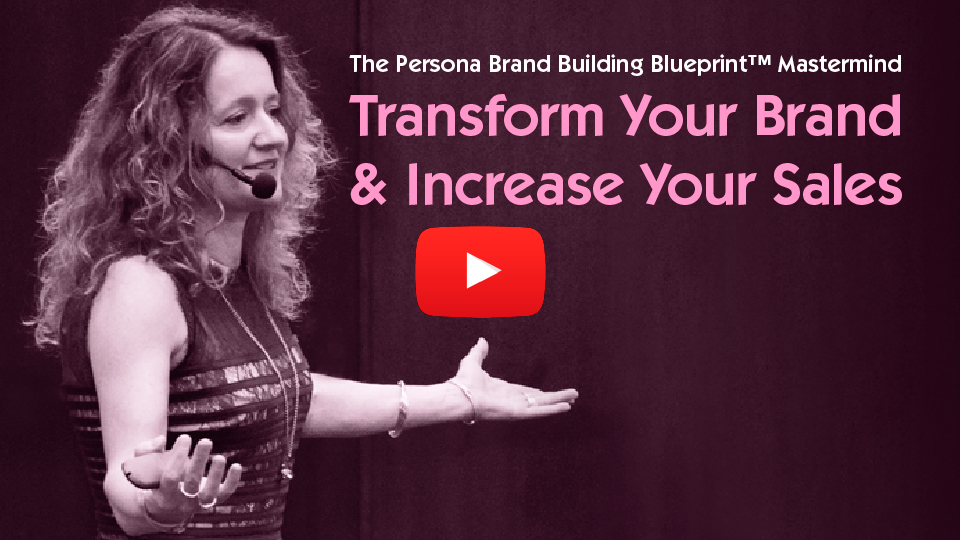
Build your standout brand at the Persona Brand Building Blueprint™ Mastermind with Lorraine Carter
Sources:
- https://octopuscreative.ca/personal-branding-vs-corporate-branding-whats-the-difference/
About
Persona Branding & Design Consultants
Contact: Lorraine Carter
T: +353 1 832 2724
Carra House
Howth, Co. Dublin, Ireland
Copyright © 2007-2022 All rights reserved.
Persona Design Consultants Ltd.
Registered in Ireland: No. 201997
Member of


